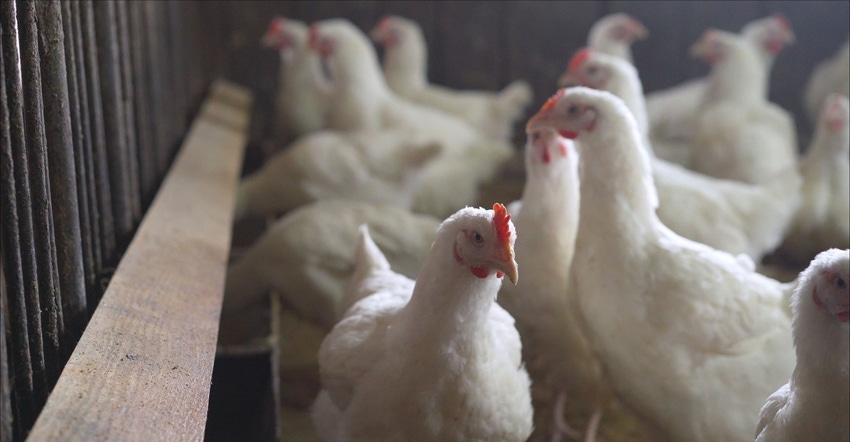HSUS accuses USDA of not encouraging poultry producers to restock with cage-free or fewer birds after 2015 HPAI outbreak.

The Humane Society of the United States, Farm Sanctuary and Mercy For Animals just settled a lawsuit against USDA for $64,000 in a case blaming USDA for not encouraging facilities restocking after the highly pathogenic avian influenza outbreak in 2015 to shift to cage-free systems or facilities with additional space.
The plaintiffs’ claims allege that APHIS-Veterinary Services’ December 2015 Final Environmental Assessment entitled “High Pathogenicity Avian Influenza Control in Commercial Poultry Operations—A National Approach” failed to follow the Administrative Procedure Act and the National Environmental Policy Act.
In a bird flu outbreak, the current USDA approach involves killing every animal at or near the impacted facility. The government then uses indemnity payments to reimburse producers for the cost of restocking their operations with new animals.
A blog written by HSUS President and CEO Kitty Block and President of the Humane Society Legislative Fund Sara Amundson, says that in 2015, HSUS proposed to USDA that the agency should require producers re-stocking their facilities after an outbreak to shift to cage-free or other systems that give birds more space and the ability to engage in healthy, natural behaviors.
“Our lawsuit alleged that the agency’s plan inadequately analyzed how killing and burying or burning millions of tightly confined birds threatens wildlife, habitats, water supplies, air quality and human health. The settlement requires the agency to revisit these issues and conduct a more in-depth analysis of these threats,” Block and Amundson write.
They state this is important and timely given that the U.S. is in the midst of another nationwide bird flu outbreak that has quickly spread to 40 states.
HSUS says though the USDA agreed that “overcrowding animals can amplify influenza, instead of doing anything to discourage it, the agency said that it planned to just ‘encourage farmers to consider reducing the number of birds in poultry houses as part their best management practices.’ Unfortunately, there’s no evidence that this supposed encouragement led to any reduction in cruel and dangerous confinement anywhere, and now six years later the U.S. is enduring another devastating bird flu outbreak,” HSUS writes.
“But thanks to the settlement, the USDA will go back to the drawing board, and nothing is stopping the agency from adopting the anti-confinement incentives the HSUS suggested in 2015,” writes Block and Amundson.
However, Ken Klippen, president of the National Egg Farmers Association, says HSUS again makes a false claim that what they term as factory farms, which is commercial poultry production, is the source of diseases when the premises depopulated for highly pathogenic avian influenza from commercial farms are nearly equal to backyard flocks. Klippen says in the most current HPAI outbreak, as of June 3, 184 commercial flocks have highly pathogenic avian influenza and 176 backyard flocks do also.
“Never let a crisis go to waste is a political position, and HSUS is trying to capitalize on the unfortunate experience of this dreadful poultry disease,” he says.
About the Author(s)
You May Also Like



.png?width=300&auto=webp&quality=80&disable=upscale)

